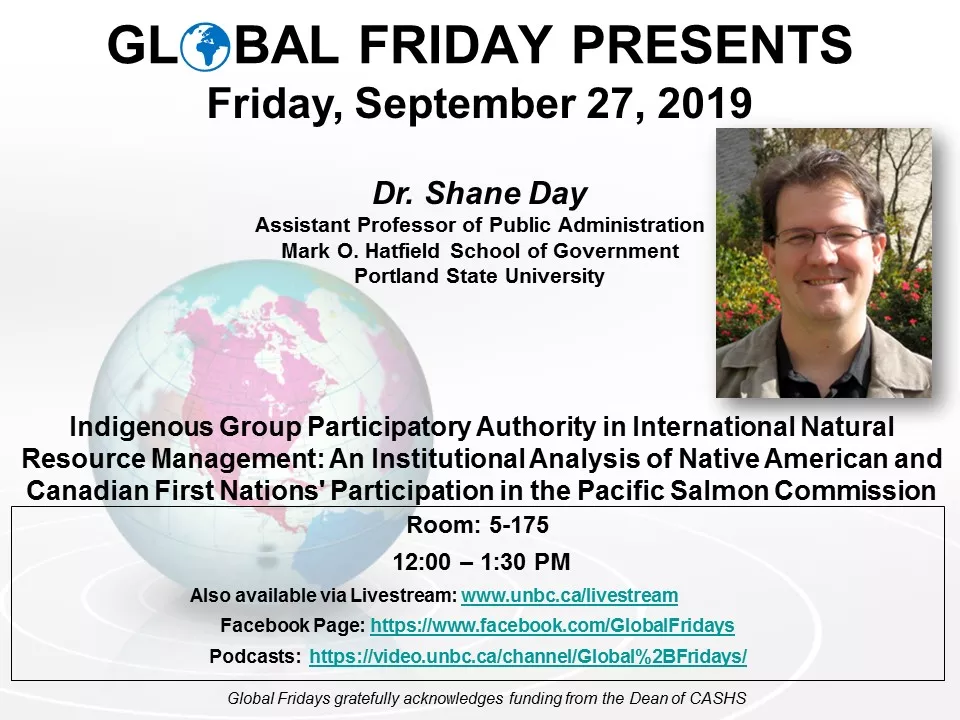Indigenous Group Participatory Authority in International Natural Resource Management: An Institutional Analysis of Native American and Canadian First Nations' Participation in the Pacific Salmon Commission

Dr. Shane Day
Assistant Professor of Public Administration
Mark O. Hatfield School of Government
Portland University State
ABSTRACT: The Pacific Salmon Commission is an interesting example of meaningful participation by indigenous groups in international natural resource governance. Both Canadian First Nations and Native American tribes have codified representation in the organization. However, there are distinct differences in the relative levels of influence between each of these groups. This talk will present the results of an institutional analysis of the distinct pathways towards inclusion of these groups in the PSC, and examine how institutional rules shape levels of indigenous influence within the organization. Differences in the participatory authority of Canadian First Nations versus Native Americans from the USA are largely attributable to distinct processes of intergovernmental relations at the domestic level, rather than processes within the PSC itself.
BIO: Shane Day is an Assistant Professor at the Mark O. Hatfield School of Government at Portland State University, and Affiliated Faculty at the Ostrom Workshop at Indiana University - Bloomington. He is a graduate of the Joint Ph.D. Program in Public Policy at the Paul H. O'Neill School of Public and Environmental Affairs and Department of Political Science at Indiana University, and holds Master of Arts in International Studies, Master of Public Administration, and Bachelor of Arts in Political Science degrees from the University of Washington in Seattle. His research interests are in environmental policy and natural resource management, particularly in the areas of fisheries, forestry, and protected lands; indigenous group policy and self-governance; comparative public policy; comparative federalism and intergovernmental relations; agricultural policy; economic development; collaborative management; and international relations.
Also available via Livestream
Global Friday gratefully acknowledges funding from the Dean of CASHS.